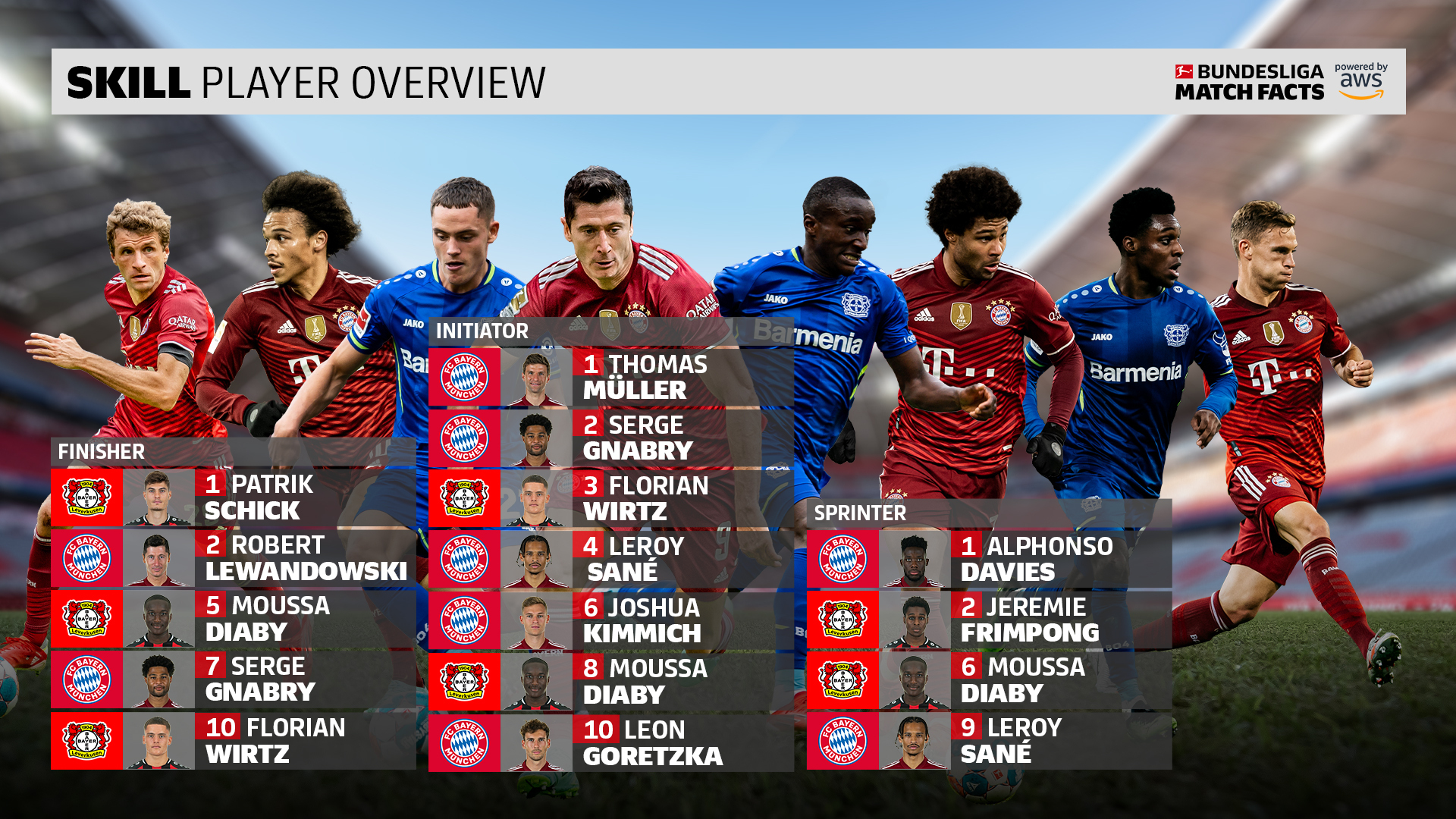Bayer Leverkusen’s Simon Rolfes on the new Bundesliga Match Facts that highlight football’s data revolution | Football News
“It was not by luck that we scouted him and he is very fast,” says Simon Rolfes. “We search for players who are very fast. Data is a key part of that nowadays.”
Bayer Leverkusen’s sporting director is discussing the signing of Moussa Diaby from Paris Saint-Germain in 2019. The French winger already has 12 goals and seven assists in the Bundesliga this season, helping Leverkusen up to third in the table.
Rolfes is speaking at the launch of the latest release of Bundesliga Match Facts, powered by AWS, that are designed to provide a deeper insight for audiences. Diaby is the only player to feature among the top 10 Bundesliga players as a sprinter, an initiator and a finisher in their new ‘skill’ metric.

“It is interesting to double-check your own players,” acknowledges Rolfes. “A player like Moussa Diaby is top of a lot of rankings. If you check that during the season you can see that he has also made a really good development in terms of winning the ball back.”
So, what is the process when identifying a player like Diaby?
“When we scout a player we come from three perspectives. There is the data, the video live scouting, and also scouting the personality of the player. We are creating a young team that needs to develop so it needs the right mentality to develop yourself and the club.
“Data is at the beginning of the process. We start with data selection and then we check the other parts. We look to the live scouting and research his personality. Most of the time is spent on the personality. In the end, I have to balance it before I make a decision.
“It is interesting to do the eye check. But the data is neutral. You get a lot of information and have to pull out the right data. For example, he may have a certain role in his current team but how is that going to fit into your team? We spend a lot of time analysing that.
“But we start with the data.”
Rolfes is fresh from a rather more important meeting, going through the match plan with the coaches to prepare for the game against Bundesliga leaders Bayern Munich on Saturday. “Hopefully we have the right answers to the questions they ask,” he says, smiling.
Data will inform their thinking. “We always start with the data. What kind of team is it? Where do their attacks come from? Bayern is a difficult example because we know them very well. But it can be very quick through data to get a feel for the opponent.
“We present the match plan to the players at the end of the week. Some guys need less information. Some guys are very interested in data and want to study video of the opponent. Players are much more open to data than 20 years ago, for sure.
“Nowadays, the data really helps the players to improve and compete. That is why they use it, they ask for it. The quality of the data is getting better and better, not only for the fans to understand the game but also for us as a club to use it.”
It is even changing the way that the game is played. One of the Bundesliga Match Facts being used on air measures goal probability. Analysis of the inefficiency of shooting from long distances may have led to a sea change in shot locations over the past decade.
“The first step as a head coach or me as a sporting director is taking better decisions but then preparing the player to make better decisions,” explains Rolfes. “For sure, you can see a development in the style of play. You are seeing more short passes.
“Shot efficiency is a little bit the result of this good build-up. The build-up, the progression of the game, if you prepare chances in the right way, you have a higher efficiency. We work on this every day. Also, with top players like Florian Wirtz, it is a sign of their quality.”
It requires a head coach who is willing to embrace analytics and Leverkusen have one in Gerardo Seoane, the 43-year-old Swiss coach who was appointed in the summer.
“I think that is important because we can provide him a lot of information to improve his decisions so it is important that he is open to using that information.
“It is also a question a little bit of the ages of coaches. Our coach is quite young so he is used to using data. There is no question that data is not a part of his daily work.”
But what does Rolfes believe will be the next evolution in analysis?
“It would be very interesting to know the perception of the player before he gets the ball. We know from studies that Iniesta was turning his head much more often than other players in that position. It is an indication of quality in the best players.
“That would be really interesting to know that detail, not just how many times they are turning their head but where their eyes are looking before they get the ball.”
Football’s thirst for data is only increasing.


Pingback: top cams
Pingback: altogel
Pingback: Mostbet
Pingback: Plinko BGaming